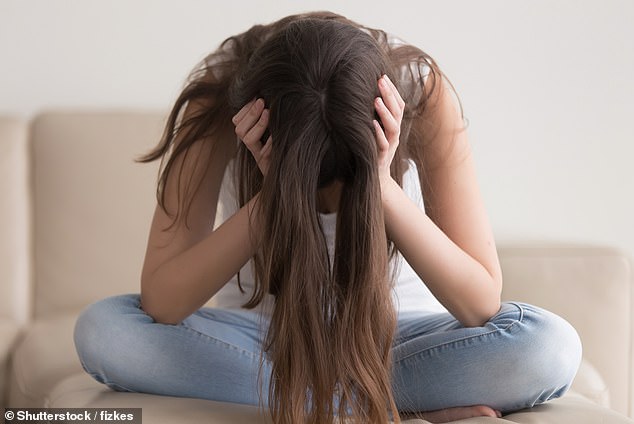The call for ‘magic mushrooms’ from the poison center increased after decriminalization, research shows
Calls to poison control centers about magic mushrooms have skyrocketed since a wave of decriminalization efforts for the drug began less than five years ago.
Calls from teens aged 13 to 19 more than tripled between 2018 and 2022, and three-quarters of exposures to psilocybin – the psychoactive chemical in magic mushrooms – required medical attention.
Anyone can call the 1-800 poison control hotline, which will connect them to one of the country’s 55 poison centers, where experts are always on hand to provide advice if someone has ingested something dangerous, such as a drug or household chemicals.
According to researchers at the University of Virginia, the rate doubled among young adults in their 20s, with nearly the same percentage needing help from a doctor.
The calls to poison control centers were not limited to those in states where restrictions on the drug have been lifted, suggesting that the drug’s increasing acceptance across the country could lead to potentially dangerous use even if it is illegal.
Oregon and Colorado have decriminalized psilocybin, as have several cities, including Washington, DC, Detroit and Seattle

The most common complaint from callers to poison control centers was hallucinations, followed by agitation and an abnormally fast heart rate
Denver, Colorado, in May 2019, set the stage for a wave of efforts across the country to lift the ban on psilocybin, a growing topic of interest among scientists looking for new ways to treat post-traumatic stress disorder and major depression in veterans to treat.
While the psychedelic has shown promise in these arenas, it has not been tested in the young, developing brains of children, which may be subject to lasting effects such as changes in brain structure, impaired cognition and processing of emotions, increased risk of psychiatric disorders , and potential for addiction.
Doctors are concerned that children could get their hands on the drug despite an age restriction of 21 and over in places where it has been decriminalized, adding that the substance is available in child-friendly vehicles such as chocolate and candy.
Calls from 13 to 19 year olds increased from 152 to 464 in the period 2018 to 2022, while calls from people aged 20 to 25 increased from 125 to 294 during that period.
By comparison, the number of psilocybin-related calls to poison control centers for people ages 13 to 25 remained largely unchanged between 2013 and 2018, the researchers found.
The sharp increase in the number of children receiving the drug was “particularly alarming,” the researchers said.
The most common effects were hallucinations or delusions, accounting for 37 percent of calls.
Agitation was the second most common reason, accounting for about 28 percent of calls, followed by an abnormally fast heart rate of 20 percent. Sixteen percent of callers mentioned confusion.
Two deaths were related to psilocybin use, but both people had also used other drugs at the same time.
The main reason for their deaths was fentanyl or a type of hallucinogenic amphetamine, with psilocybin playing a smaller role.
Dr. Rita Farah, epidemiologist at the Blue Ridge Poison Center, said, “As psilocybin may become more widely available, it is important for parents to be aware that psilocybin is also available in edible forms such as chocolate and gummies.
“And from our experience with edible cannabis, we’ve learned that young children can mistake edibles for candy.”
Oregon and Colorado have decriminalized psilocybin, as have several cities, including Washington, DC, Detroit and Seattle.
Psilocybin has mind-altering effects by binding to serotonin receptors in the brain and disrupting their signaling pathways.
Activating receptors for serotonin, which is crucial for regulating mood and emotion, creates a cascade of neurological activity, including increasing levels of the neurotransmitter glutamate, which is involved in learning and memory.
It also disrupts what is known as the default mode network, which involves mind wandering and introspection, leading to changes in consciousness and sense of self.
It also increases connectivity between different brain areas, which could explain the altered sensory experiences during a ‘trip’.
Dr. Christopher Holstege, director of UVA Health’s Blue Ridge Poison Center and chief of the Division of Medical Toxicology at the UVA School of Medicine, said, “I am deeply concerned that children are gaining access to these products.
‘We have limited data on the possible long-term consequences for children’s developing brains when they are exposed to compounds that affect brain neurotransmission.
He added: ‘We also do not fully understand why some individuals have apparent adverse complications from psilocybin use, known as ‘bad trips’, which can lead to harm to the individual or to others who may be victims of violent behavior .’
Small clinical studies have shown that low doses administered in a clinical setting, such as a therapist’s office, can have even more beneficial effects than standard antidepressants.
But a ‘bad trip’ can be dangerous in an unregulated environment, for example when someone is home alone or with friends. For example, some people have been known to jump out of windows under the influence.
